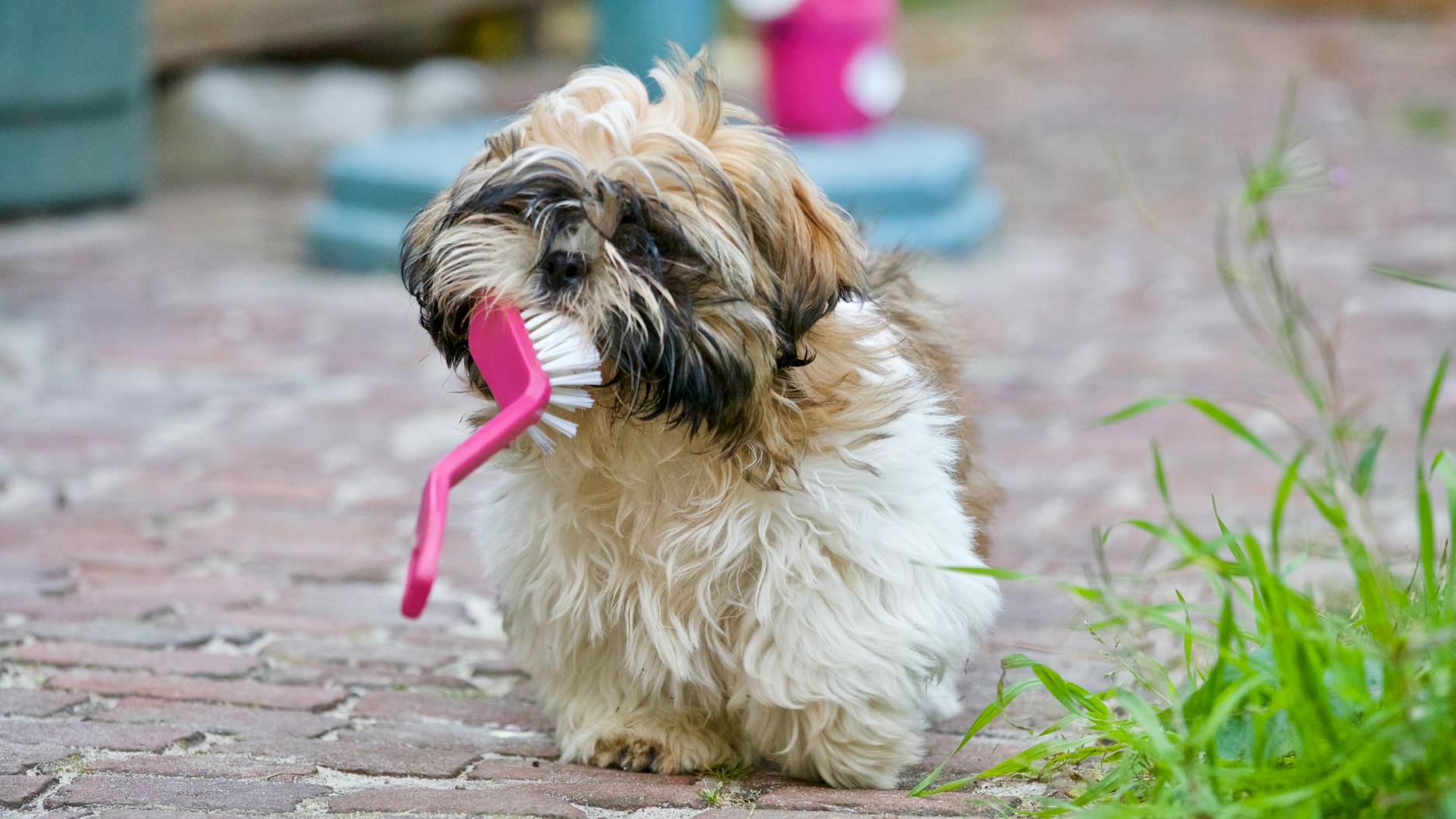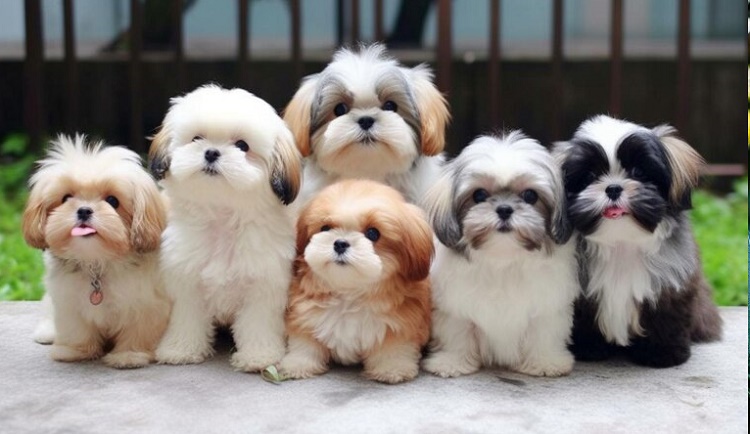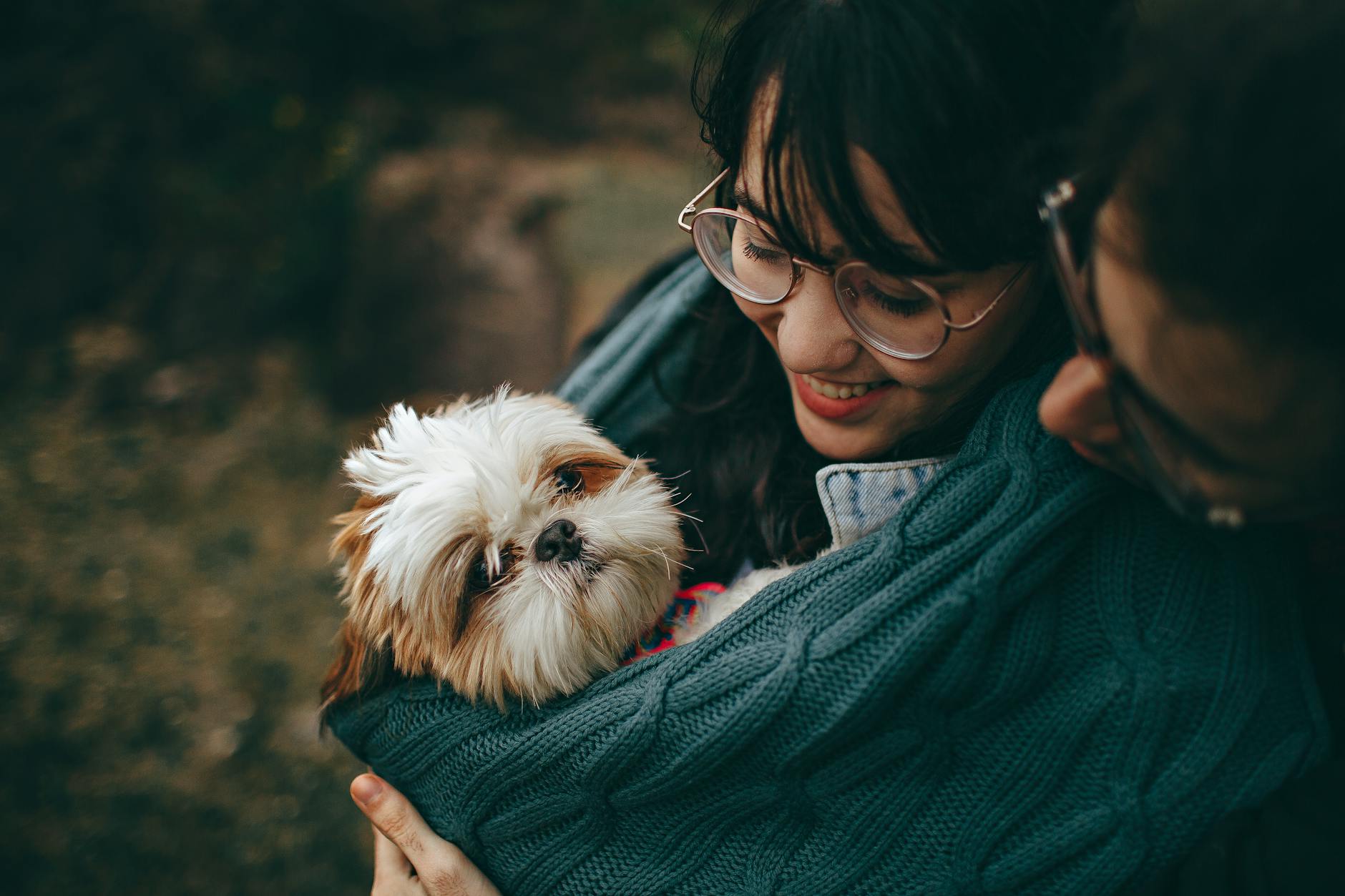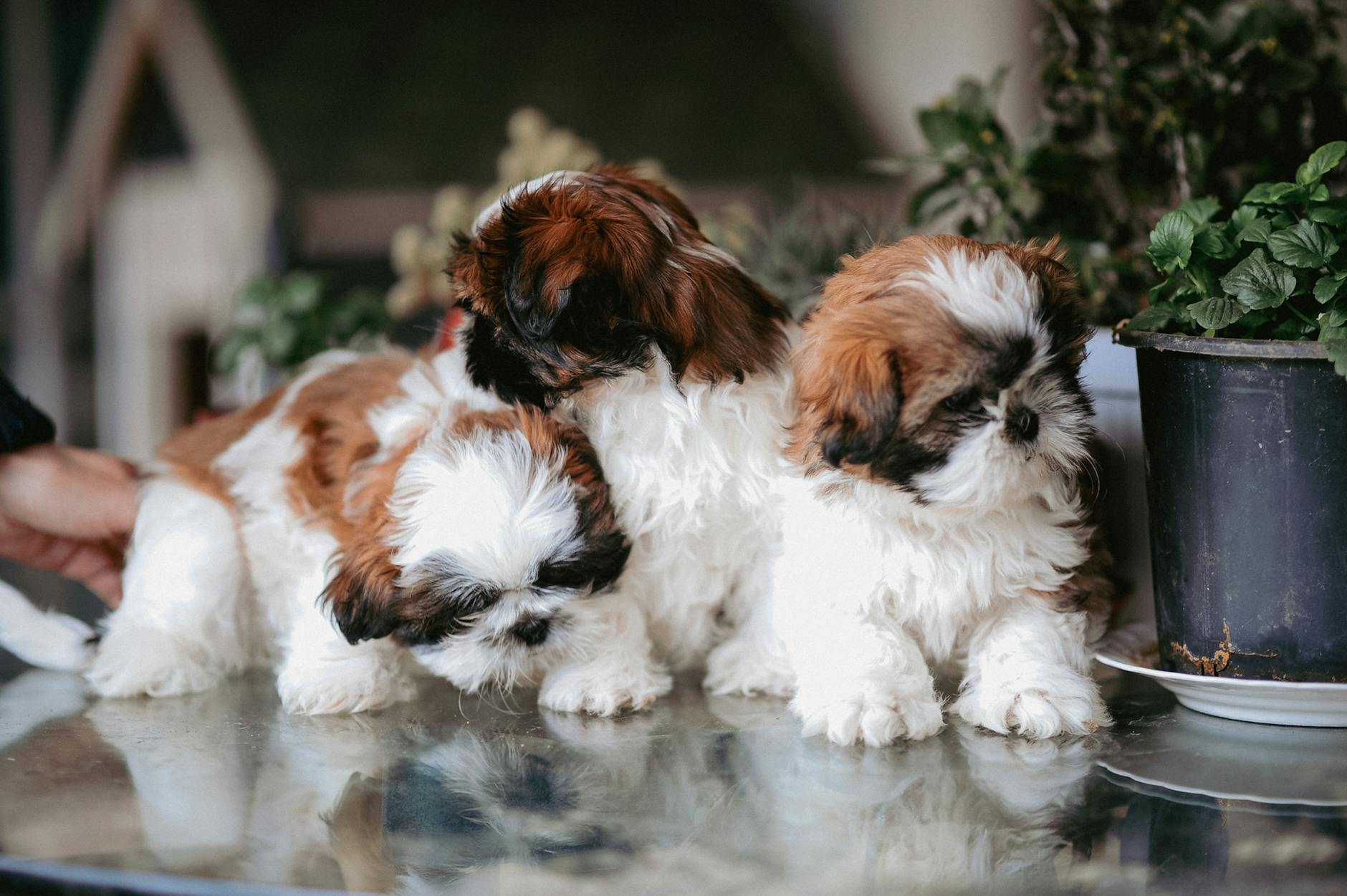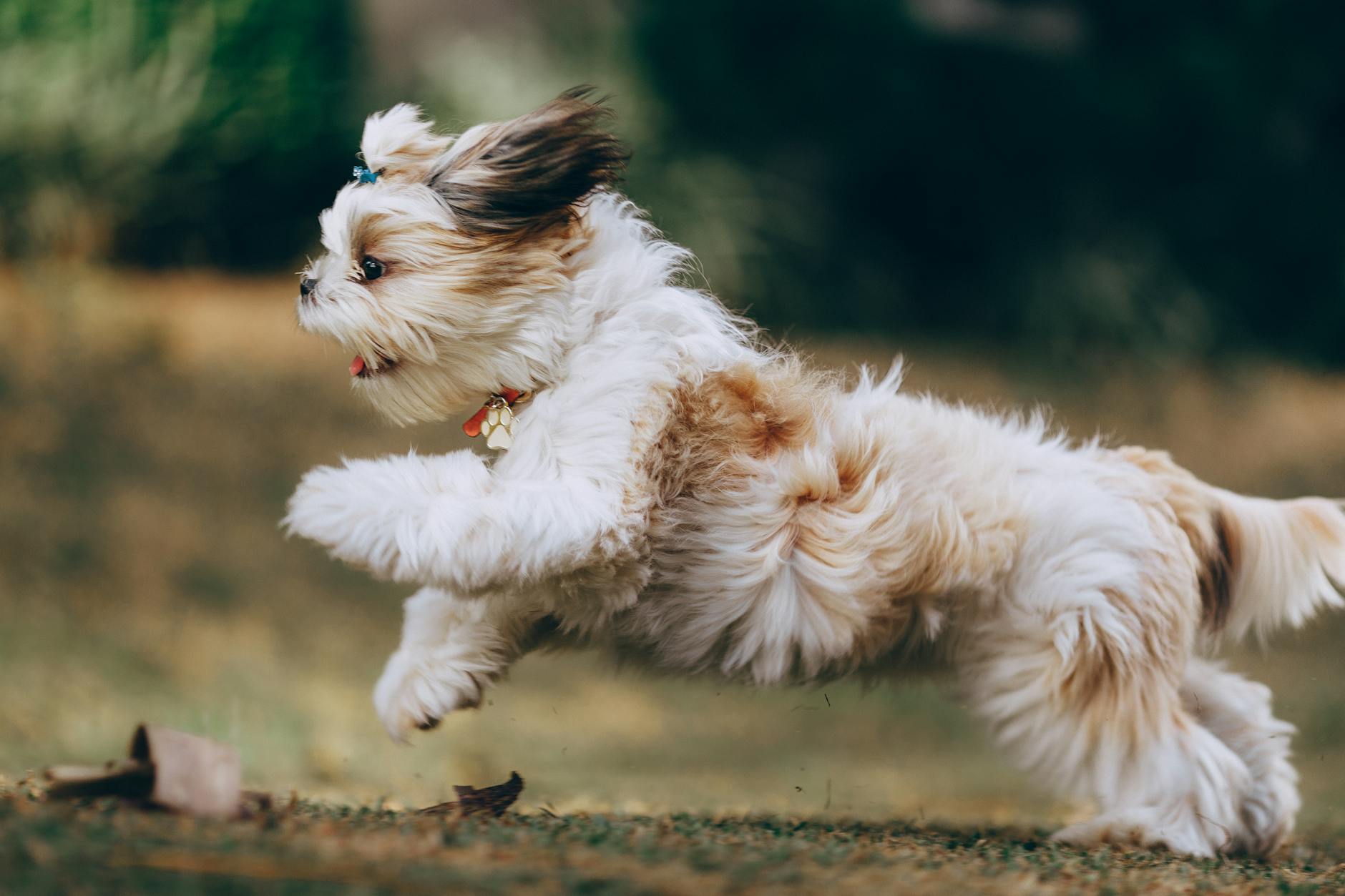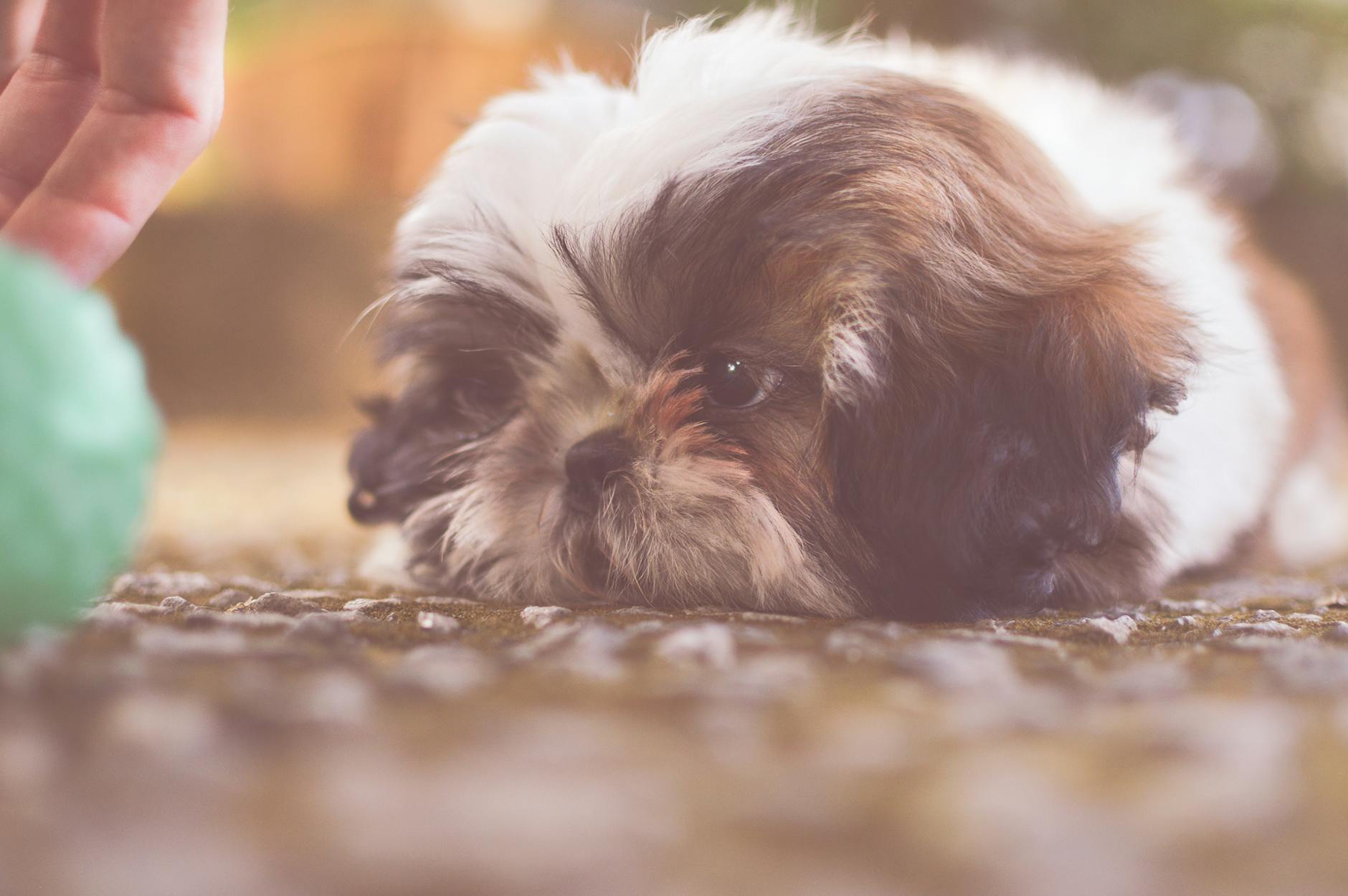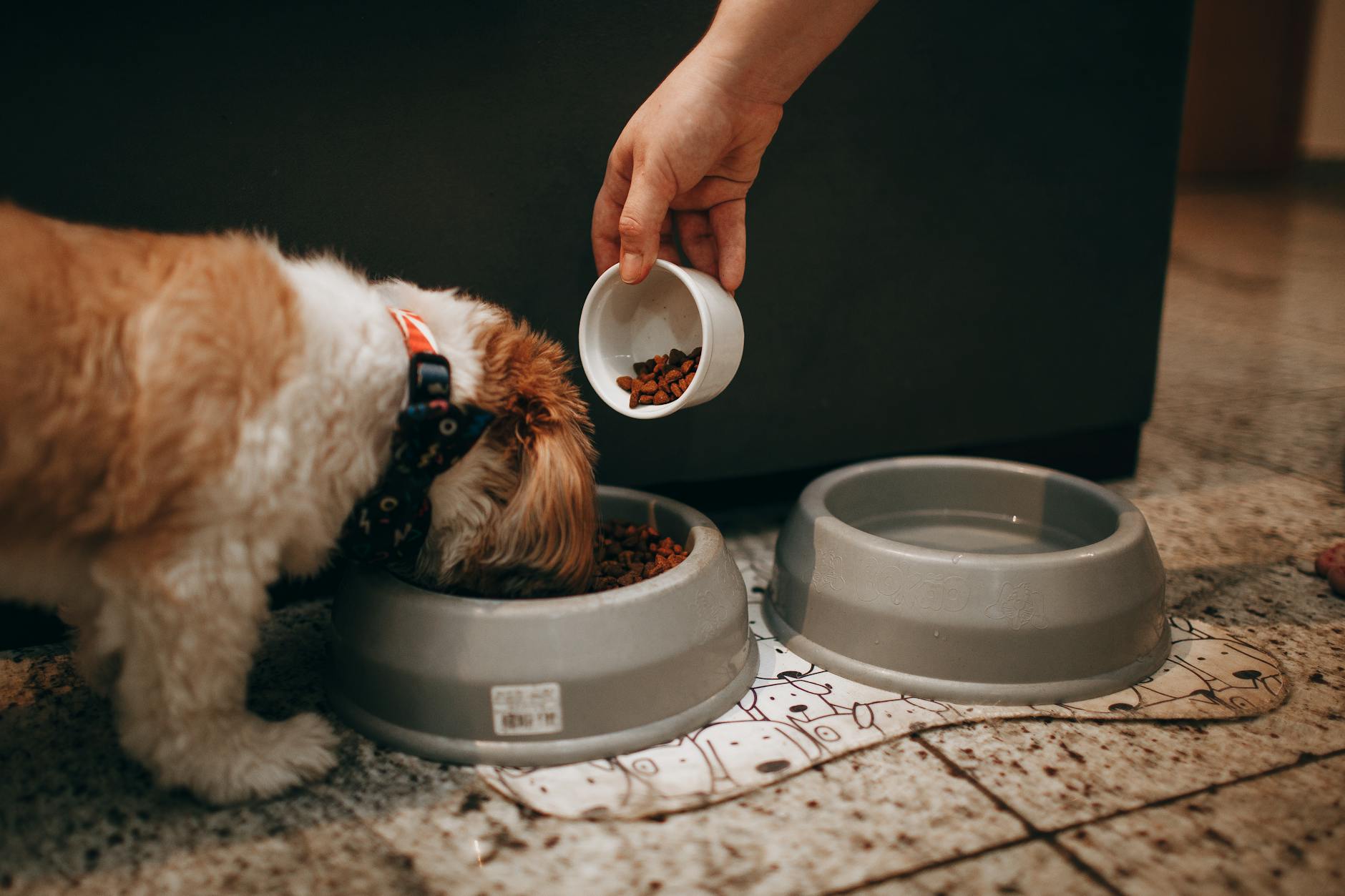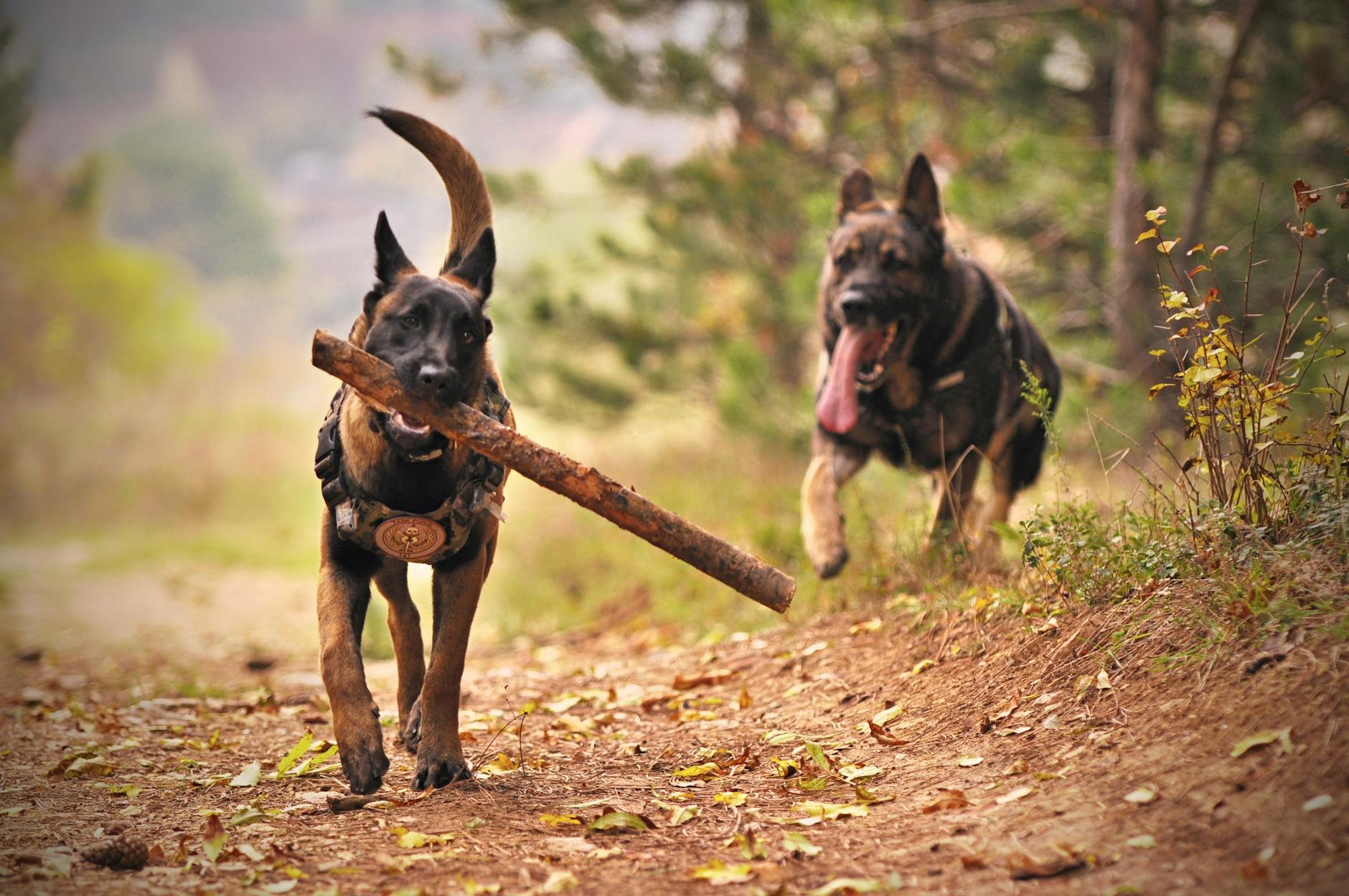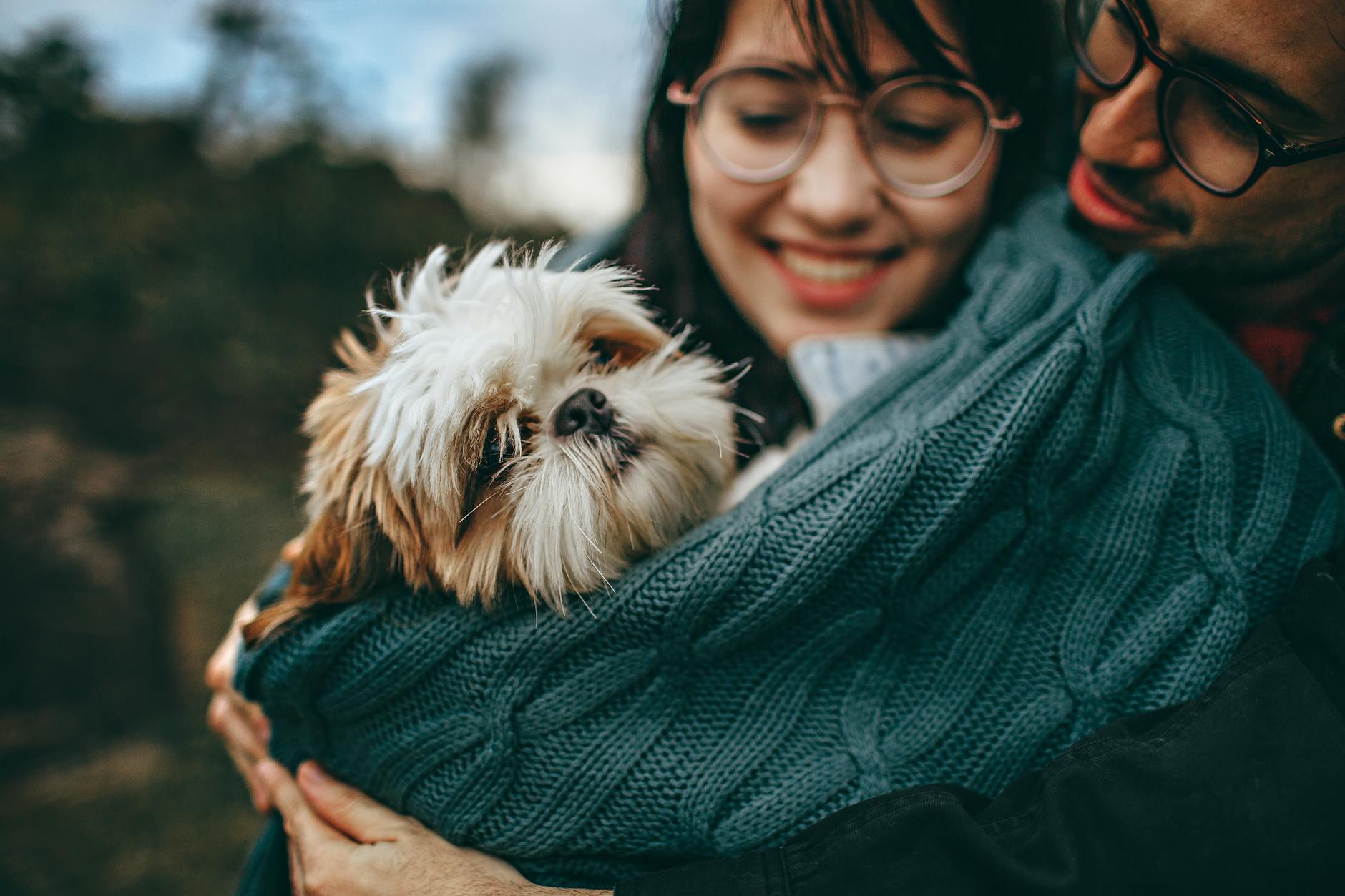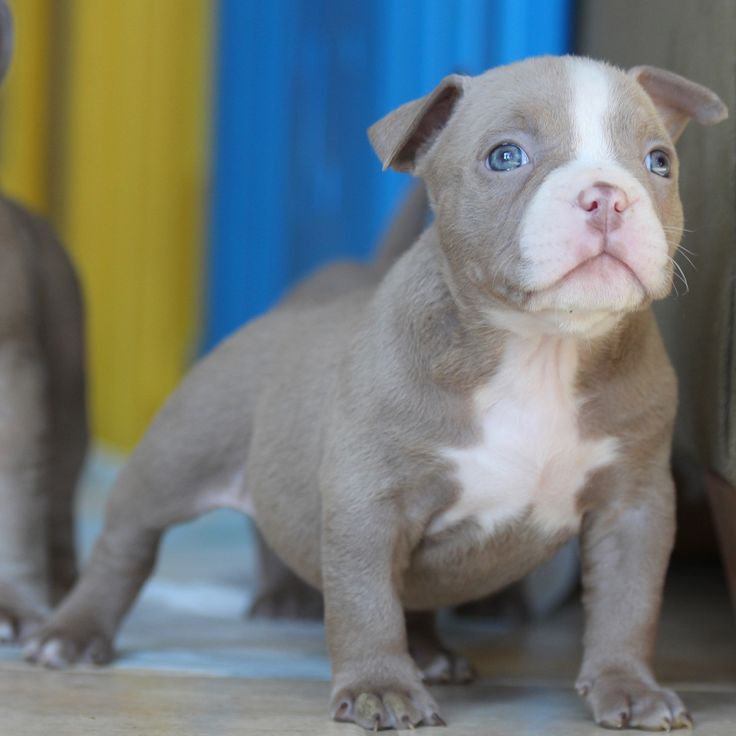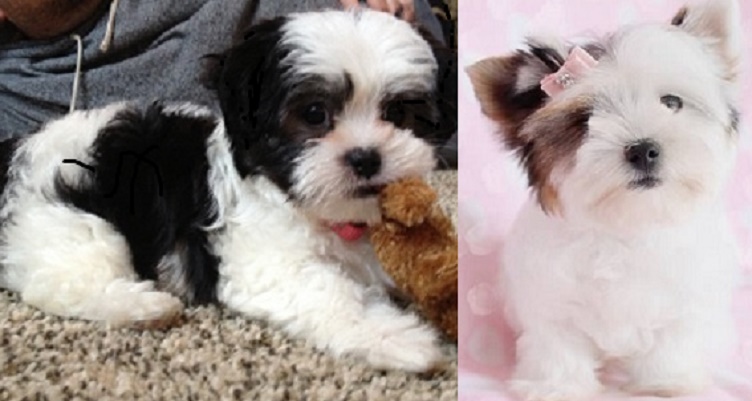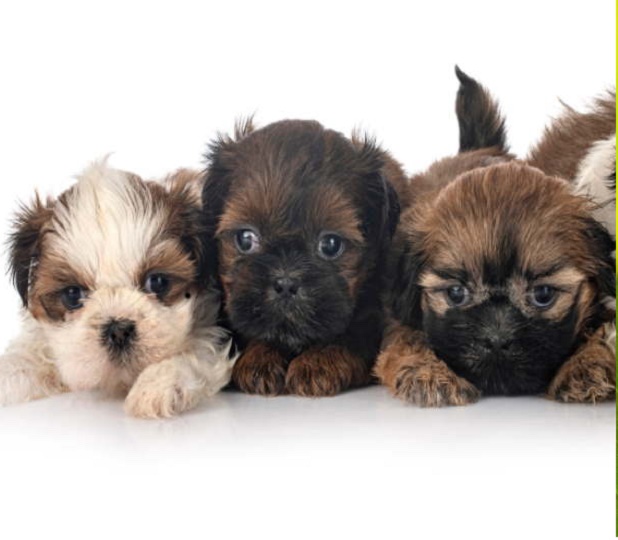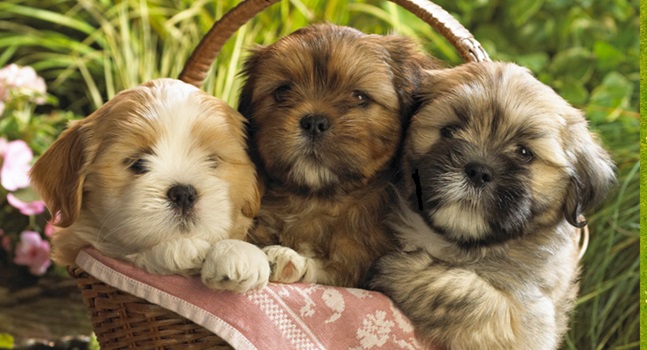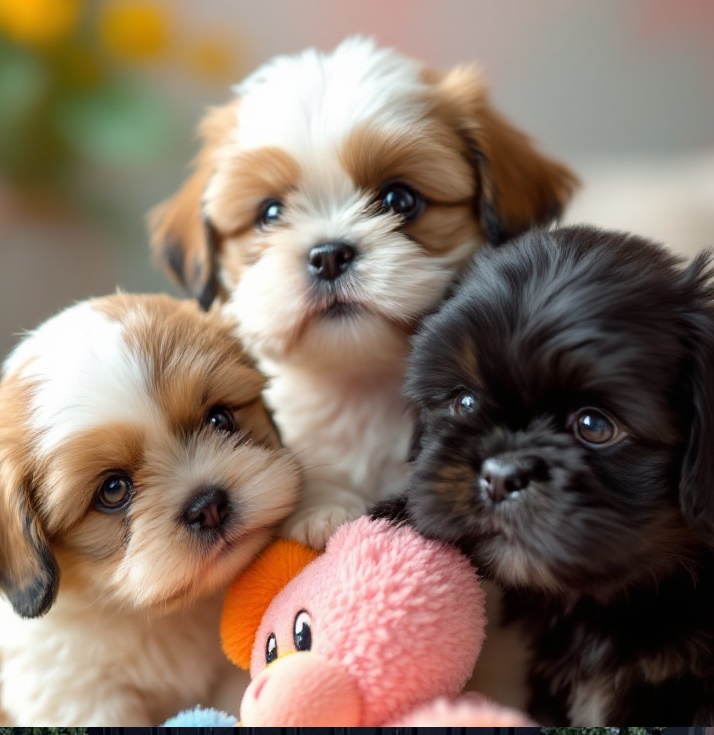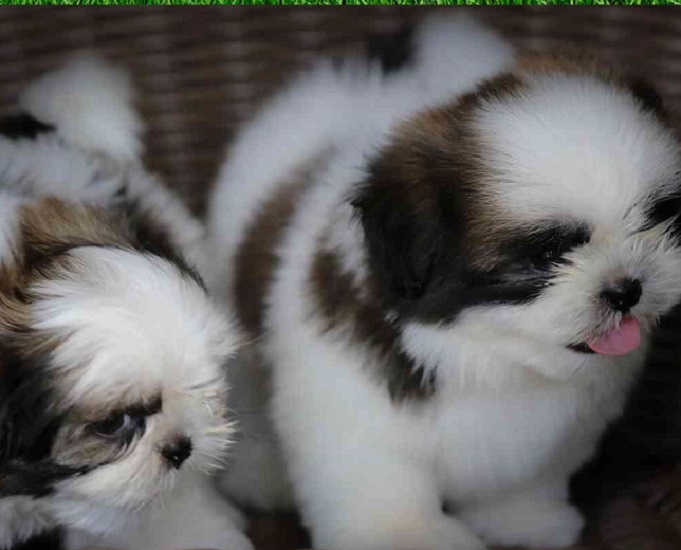Comprehensive Grooming Guide for Your Shih Tzu Puppy [Tips Included]
Grooming your Shih Tzu puppy isn’t just about keeping them looking cute—it’s essential for their health and happiness. With their long, flowing coats, Shih Tzus require regular grooming to prevent matting and skin issues. Ignoring this can lead to discomfort and even health problems down the line.
In this guide, you’ll discover essential grooming techniques, tips on the right tools to use, and the best practices to maintain your puppy’s coat. You’ll learn how often to groom and why it’s vital for your pup’s overall well-being. By keeping up with their grooming needs, you can ensure your Shih Tzu stays healthy and looks their best.
Ready to get started? Check out this YouTube video for a visual guide on grooming techniques. Plus, for additional grooming insights, explore our page on Airedoodle Puppies: Grooming Tips and Maintenance. Your puppy will thank you for it!
Understanding the Shih Tzu Coat
The Shih Tzu is known for its beautiful, flowing double coat, which gives them their distinctive and adorable appearance. However, this coat is not just for looks; it requires dedicated grooming to keep your pup healthy and happy. Understanding the composition of a Shih Tzu’s coat can help you better navigate the grooming process.
The Double Coat Explained
The Shih Tzu’s coat is composed of two layers: a soft undercoat and a long, flowing topcoat. The undercoat provides insulation and warmth, while the topcoat adds protection and beauty. This combination is what makes Shih Tzus so unique.
Regular grooming is essential for maintaining this gorgeous coat. Without it, the undercoat can become matted and tangled, leading to discomfort for your puppy. In addition, the topcoat tends to trap dirt, allergens, and moisture. This can lead to skin issues if left unattended. Brushing your Shih Tzu helps distribute natural oils, keeping the coat healthy and vibrant.
For more detailed grooming advice, check out Shih Tzu Grooming Instructions, which outlines effective brushing techniques and tips.
Common Grooming Challenges
As a Shih Tzu owner, you may encounter specific grooming challenges. The most notable issues include matting and tangling. These can easily happen due to their long hair, especially if grooming is inconsistently performed.
Matting occurs when hair becomes intertwined and forms clumps, which can pull on the skin and cause pain. Regular brushing with a slicker brush is crucial to prevent matting, as it removes loose hair and helps keep the coat smooth. A good quality metal comb can also assist in finding and eliminating any knots.
Tangles are another issue that owners must be vigilant about. These can form quickly, especially around the ears, armpits, and the tail area. To tackle tangles, try using a detangling spray or conditioner designed specifically for dogs to ease the process. A little patience goes a long way when working out these knots!
For a deeper understanding of your Shih Tzu’s grooming needs, visit this resource: The Glamorous Shih Tzu Coat, From Top Knot to Tail.

Essential Grooming Tools
Grooming your Shih Tzu requires more than just a little brush and some water. Having the right tools makes the process smoother and more effective. Investing in quality grooming tools ensures your puppy’s coat stays in top condition, and it can turn grooming time into a positive experience for both you and your furry friend.
Brushing Tools
When grooming a Shih Tzu, brushing is one of the most important routines. Their long, luxurious coat can easily become tangled or matted if neglected. Here are some essential brushing tools to consider:
- Slicker Brushes: These are specially designed with fine, short wires close together. They effectively remove tangles and loose hair, making them perfect for Shih Tzus.
- Pin Brushes: A great option for the topcoat, pin brushes have longer pins that help smooth the layer and distribute natural oils. They’re gentle on your pup’s skin, making grooming a pleasant experience.
- Metal Combs: A metal comb is useful for finer detailing. It can help you locate knots or tangles that need extra attention. Combs also work well for getting through the undercoat.
Using the right brush helps prevent issues like matting and promotes healthy skin. For additional tips on brushing techniques, check out this Shih Tzu Grooming Guide.
Trimming Tools
Maintaining your Shih Tzu’s coat is not just about brushing. Regular trimming is essential to ensure their coat remains healthy and styled. Here’s what you need in your grooming kit:
- Grooming Scissors: These are essential for trimming around the face, paws, and other areas that require detail. Look for a pair with rounded tips to ensure safety.
- Clippers: Electric dog clippers make it easy to shorten your puppy’s coat without the hassle of scissors. Make sure to choose clippers designed for small breeds, as they’re quieter and usually low-vibration.
Using scissors and clippers can help keep your Shih Tzu looking tidy and help control excessive growth. For more insights on choosing clippers, visit this link on clippers and grooming techniques.
Cleaning Tools
Hygiene is just as important as grooming for Shih Tzus. Here are some cleaning tools you shouldn’t overlook:
- Ear Cleaning Solutions: Shih Tzus often accumulate dirt and wax in their ears. A good ear cleaning solution can help maintain hygiene and prevent infections.
- Nail Clippers: Regular nail trimming is crucial for your puppy’s comfort and health. Look for clippers designed specifically for small dogs to make the task easier and safer.
- Toothbrush and Toothpaste: Dental care is essential, and brushing your puppy’s teeth can help prevent dental issues. Use a toothpaste made specifically for dogs.
Proper cleaning tools ensure your Shih Tzu stays healthy across all fronts. You can find some great recommendations for grooming supplies in this grooming supplies checklist.

Grooming Routine Steps
Establishing a grooming routine for your Shih Tzu puppy is crucial. It helps keep their coat healthy and free from mats, dirt, and skin issues. Following a few key steps ensures your puppy enjoys the process. Here’s how to create an effective grooming routine for your little companion.
Brushing Frequency and Techniques
Regular brushing is vital for maintaining your Shih Tzu’s coat. Aim to brush their hair at least three times a week, or ideally every day if possible. This helps prevent tangling and matting, which can be uncomfortable for your pup.
Techniques to Follow:
- Start with a Slicker Brush: Use a slicker brush to gently remove any tangles and loose hair. Begin at the roots and work your way to the tips, being cautious near sensitive areas like the ears and tail.
- Use a Pin Brush: After detangling, switch to a pin brush for smoothing the coat. It helps distribute natural oils, making your Shih Tzu’s fur soft and shiny.
- Don’t Forget the Undercoat: Utilize a metal comb to check for any remaining tangles in the undercoat. This is especially important during shedding seasons.
Remember, patience is key! Grooming should be a bonding experience. For further guidance on brushing techniques, explore this Shih Tzu Grooming Instructions.
Bathing Guidelines
Bathing your Shih Tzu is another essential grooming step. Generally, a bath every 4 to 6 weeks is sufficient. However, if your puppy gets particularly dirty or smelly, feel free to bathe them sooner.
Best Practices:
- Use a Gentle Shampoo: Opt for a tear-free, puppy-safe shampoo. Products specially formulated for dogs are ideal, as they help maintain the natural oils in your puppy’s skin. Check out this guide on Shih Tzu grooming tips.
- Rinse Thoroughly: Ensure all shampoo is thoroughly rinsed out to avoid skin irritation. Any residue can lead to itching and discomfort.
- Drying: After bathing, gently towel dry your puppy. A blow dryer set on low heat can help, but keep it at a safe distance. Always check the water temperature and air to ensure comfort.
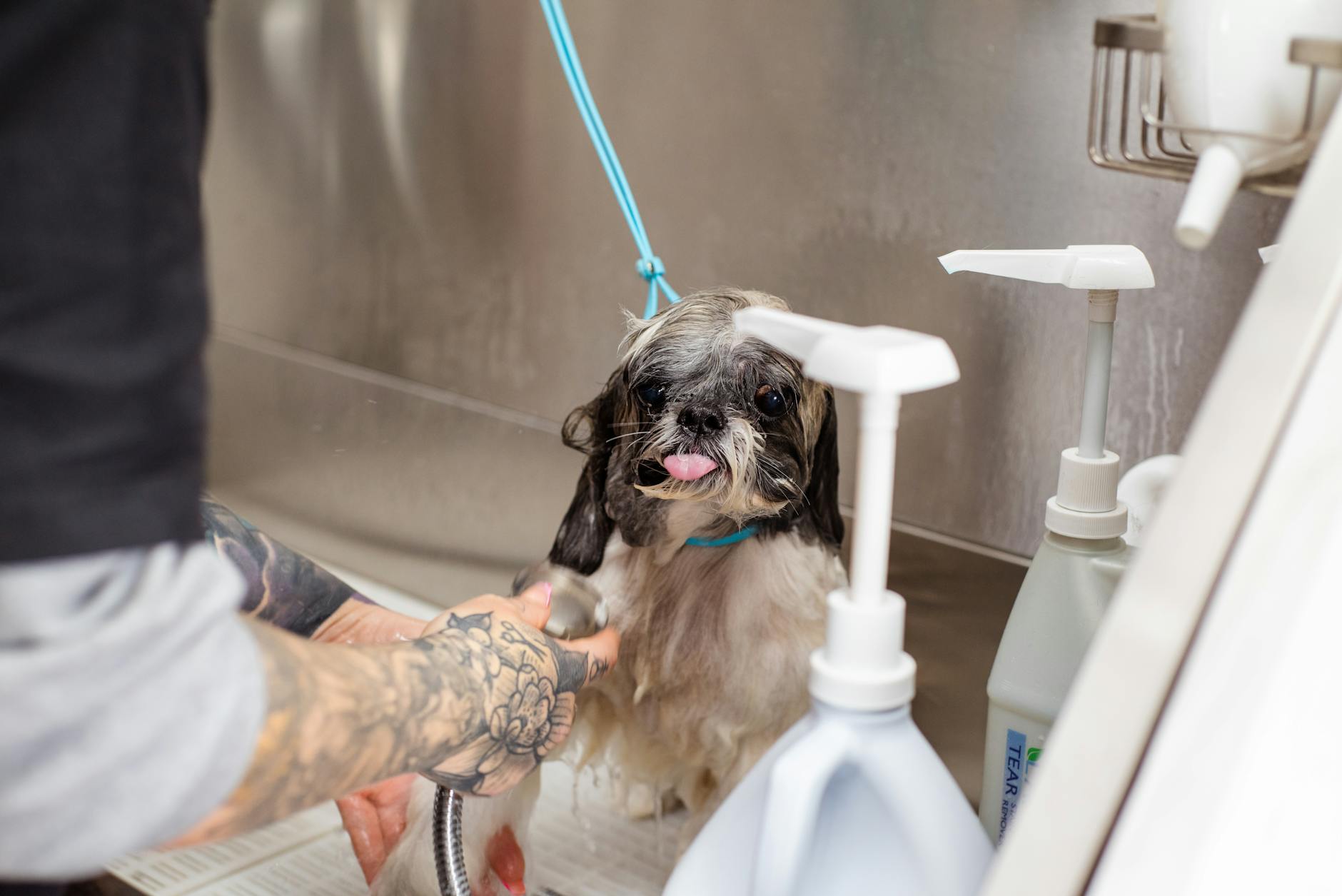
Trimming and Nail Care
Regular trimming and nail care are important to your Shih Tzu’s grooming routine. Keeping their nails trimmed prevents splaying and discomfort while walking.
Importance of Trimming:
- Facial and Fur Trimming: Trim the fur around their face, ears, and paws to prevent matting and enhance visibility. Regular trimming maintains their adorable puppy cut.
- Nail Clipping: Aim to trim your puppy’s nails every 3-4 weeks. If you can hear them clicking on the floor, it’s time for a trim. Use dog-specific nail clippers to avoid injury.
How to Trim Safely:
- Get Comfortable: Let your puppy get used to the clippers. Start by handling their paws and letting them sniff the clippers.
- Hold Steady: Gently hold their paw and clip only the tip of the nail. Avoid the quick, which is the pink part inside the nail that contains blood vessels. If you accidentally cut too close, don’t panic—use a styptic powder to stop any bleeding.
- Take Breaks: If your puppy seems restless, take breaks. You want the experience to be positive so your Shih Tzu feels comfortable during future grooming sessions.
For specific instructions on trimming, you can look at this helpful Shih Tzu puppy cut guide.
By implementing these grooming routine steps, you’re setting up a positive grooming experience that your Shih Tzu will appreciate. Each session can strengthen your bond and keep your puppy looking their best.
Common Grooming Mistakes
Grooming your Shih Tzu puppy is a rewarding experience, but it’s easy to make mistakes along the way. Many pet owners unintentionally overlook essential practices, leading to stress for both themselves and their furry friends. Understanding these common pitfalls can help you avoid potential problems, keeping your puppy healthy and looking their best.
Overbathing and Its Effects
One of the most common mistakes is overbathing your Shih Tzu. While it may seem like bathing frequently will keep them clean, doing so too often can strip their coat of essential oils. This leads to dry skin, irritation, and even a dull appearance. Aim for bathing your puppy every 4 to 6 weeks unless they get particularly dirty.
In addition to drying out the skin, overbathing can disrupt the natural balance of your puppy’s skin. Just like human skin, dog skin needs some of those natural oils to maintain health. If you find your puppy smelling a little funky in the meantime, consider spot cleaning with a damp cloth or pet wipes rather than giving a full bath.
Want to learn more about the right bathing techniques? Check out this helpful resource on common dog grooming mistakes to avoid.
Neglecting Sensitive Areas
Another frequent oversight is neglecting the sensitive areas of your Shih Tzu, like the eyes, ears, and paws. These regions are often more delicate and can quickly accumulate dirt, debris, and allergens. Failing to groom these areas properly can lead to infections or irritation.
- Eyes: Shih Tzus are prone to tear staining. Gently wipe around their eyes with a moist cloth regularly to prevent buildup and keep them looking bright.
- Ears: Regularly check their ears for dirt or wax buildup. Use a veterinarian-recommended ear cleaning solution to help maintain ear hygiene and prevent infections.
- Paws: Don’t forget to check between your puppy’s paw pads for dirt or debris after walks. Trimming the hair around the paws can also prevent mud from getting trapped.
By giving these sensitive areas some extra attention, you can significantly enhance your Shih Tzu’s comfort and well-being. For tips on grooming beyond these areas, check out this guide on how often a Cairn Terrier should be groomed.

Professional Grooming vs. At-Home Grooming
When it comes to grooming your Shih Tzu puppy, you might wonder whether to go for professional services or if at-home grooming is the way to go. Each option carries its own set of benefits that can match your needs and those of your furry friend. Let’s unpack the advantages of each approach and help you decide what suits you best.
Benefits of Professional Grooming
Opting for professional grooming can be a game-changer, especially for those new to dog grooming or with busy schedules. Here are some key reasons to consider professional services:
- Expertise and Skill: Professional groomers have training and experience that can make a significant difference. They know how to handle different coat types and can effectively manage tangles or mats without causing discomfort to your pup.
- Time Efficiency: Let’s face it—grooming a Shih Tzu can be time-consuming. A professional can efficiently complete the job, leaving you with more time to enjoy with your puppy or tackle other responsibilities.
- Proper Tools and Products: Grooming salons are equipped with professional-grade tools and products specifically designed for different dog breeds. This equipment often leads to a better grooming experience and a more polished final look.
- Health Monitoring: Groomers routinely inspect dogs for skin issues, parasites, or other health problems. They may notice changes in your dog’s skin or behavior that you might miss, giving you a heads up on any concerns.
However, professional grooming comes with some downsides, such as cost and the necessity of scheduling appointments. To explore what others have experienced regarding this choice, check out this article on Going to a groomer vs grooming yourself at home?.
DIY Grooming Tips
If you’re leaning towards at-home grooming, you’re not alone! Many owners enjoy becoming hands-on with their pets. Here are some tips to help you successfully groom your Shih Tzu:
- Create a Comfortable Space: Choose a well-lit and non-slip area to groom your pup. Lay down a towel or mat for comfort.
- Brush Regularly: Aim for at least three times a week. Use a slicker brush for tangles and a pin brush to smooth the top. Brush gently to avoid pulling on sensitive areas.
- Invest in Good Tools: While you don’t need a full professional kit, having good quality slicker brushes, nail clippers, and grooming scissors can make a significant difference in the grooming experience.
- Keep it Positive: Make grooming a fun, interactive session. Use treats and lots of praise to create a positive association.
- Watch for Signs of Discomfort: Pay attention to your puppy’s behavior. If they show signs of discomfort or distress, check your techniques and adjust accordingly.
For more insights on grooming at home, you can check out this guide on home vs professional dog grooming.
You can groom your puppy effectively and affectionately with patience and the right approach. Both options can lead to a happy, healthy, and well-groomed Shih Tzu!
Grooming Specific Styles for Shih Tzus
Grooming styles for Shih Tzus can be as adorable as they are practical. The right cut not only enhances your pup’s appearance but can also make daily grooming more manageable. Let’s explore some popular grooming styles for Shih Tzus and their unique features.
The Puppy Cut
The Puppy Cut is a beloved choice among Shih Tzu owners. This style typically involves trimming the coat to about one to two inches all over the body. Not only does this create a cute, youthful look, but it also significantly reduces grooming time.
Advantages of the Puppy Cut:
- Low Maintenance: With a shorter coat, less brushing is needed to prevent tangles and mats.
- Cooler for Hot Weather: A shorter style keeps your pup feeling fresh during warm months.
- Adorable Appearance: The soft, fluffy look can be endearing and fits the Shih Tzu’s playful personality.
For more on how to achieve the perfect Puppy Cut, check out this guide from Dogster on Shih Tzu haircuts.
The Teddy Bear Cut
The Teddy Bear Cut is another popular option for Shih Tzus. This style leaves a bit more length on the head and body, giving them a round, cuddly appearance that mimics a plush teddy bear. Typically, the coat is left about two to three inches long, making it soft and fluffy.
What the Teddy Bear Cut Entails:
- Rounded Features: The face is shaped with a round cut around the eyes, enhancing those adorable expressions.
- Even Length: The cut is uniform all over, maintaining a consistent look while allowing for a bit of fluff.
- Regular Grooming Needed: While this style is still relatively low-maintenance, regular brushing and occasional trips to the groomer will help keep the coat in shape.
If you love the Teddy Bear style, you can gain more insights from The Ultimate Guide to Shih Tzu Haircuts.
Grooming for Show Dogs
If your Shih Tzu is destined for the show ring, grooming takes on a new level of importance. The specific grooming techniques for show dogs focus on creating clean lines and a pristine appearance that adheres to breed standards.
Grooming Specificities for Show Dogs:
- Full Coat Maintenance: Show dogs require their full length of hair to be beautifully groomed. This often involves more frequent brushing, possibly daily, to avoid matting.
- Perfectly Defined Topknot: For competitive shows, maintaining a well-defined topknot is key. This involves careful trimming and possibly the use of grooming products to keep it styled.
- Attention to Detail: Pay close attention to every part of their coat. The ears, paws, and underbelly require as much focus as the main body to ensure consistency.
- Regular Professional Grooming: Most owners of show dogs rely on professional groomers who specialize in breed standards to help maintain the perfect look before competitions.
To learn more about grooming show dogs, check out this helpful article on The Top 5 Shih Tzu Haircuts.

Building a Positive Grooming Experience
Creating a positive grooming experience for your Shih Tzu puppy is crucial. By approaching grooming with care and consideration, you can help your puppy feel safe and relaxed during each session. Let’s explore how to build a successful grooming routine that your Shih Tzu will look forward to.
Gradual Introduction to Grooming Tools
Introducing grooming tools to your Shih Tzu puppy should be a thoughtful process. Puppies may feel anxious when they see new objects, especially those that make noise or require close contact. Here are some tips to help ease your puppy into the grooming experience:
- Start Slow: Allow your puppy to observe the grooming tools from a distance. Hold them up while speaking softly to create a calm atmosphere.
- Let Them Explore: Allow your Shih Tzu to sniff the tools. This helps them associate the scent and feel with positive experiences.
- Introduce One Tool at a Time: Start with less intimidating tools, like a soft brush or comb. Gradually introduce clippers or scissors as your puppy becomes more comfortable.
- Practice Short Sessions: Begin with short grooming sessions, just a few minutes at a time, to prevent your puppy from becoming overwhelmed. Gradually increase the time as they adapt.
For further insights, check this guide on How to Train a Shih Tzu for Grooming.
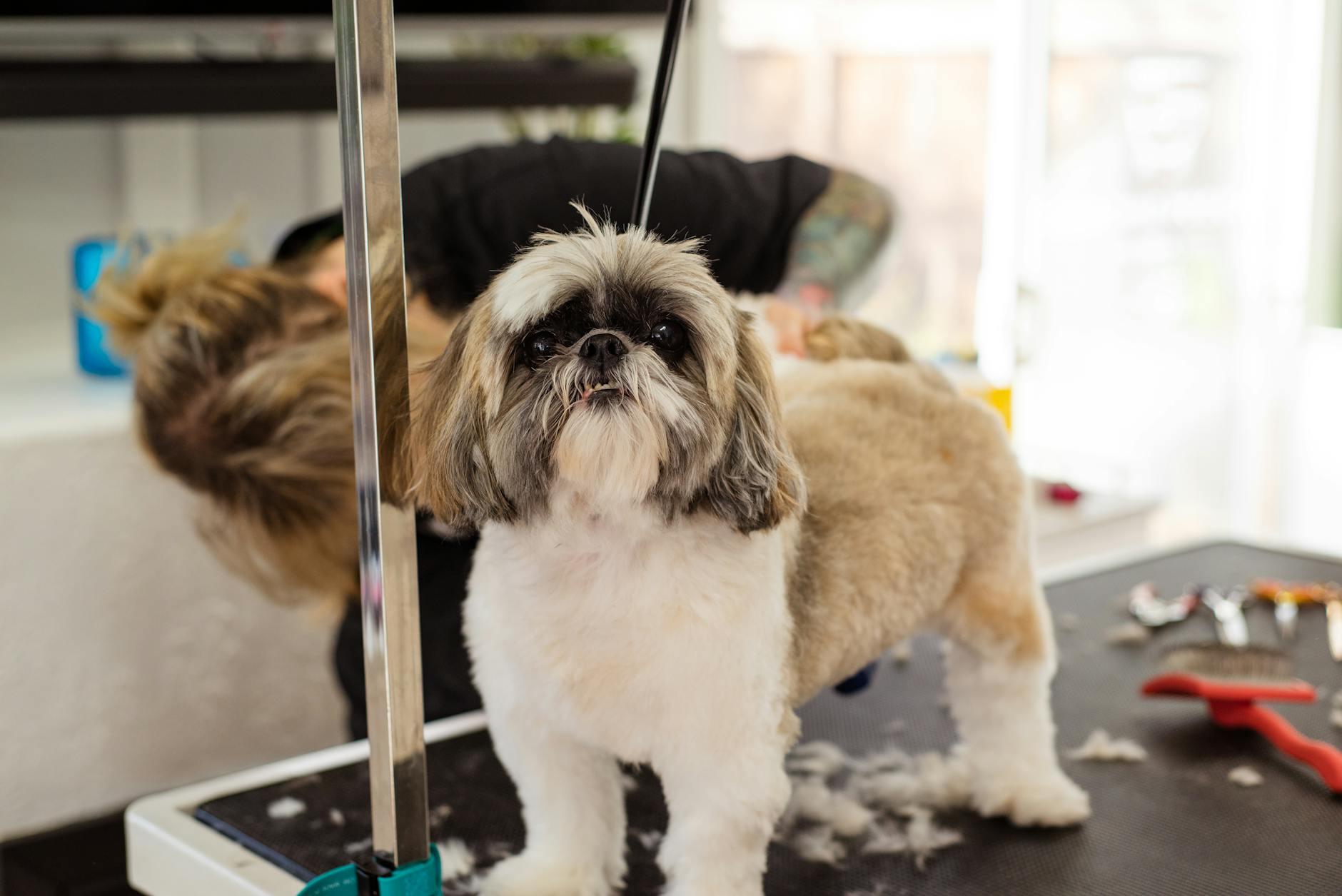
Praise and Rewards
Positive reinforcement is vital during the grooming process. Shih Tzu puppies, like humans, thrive on encouragement and love. Here’s how to effectively use praise and rewards during grooming:
- Use Treats: Keep small, tasty treats handy. Reward your puppy after each successful grooming action, such as brushing a section of their coat. This creates a positive association.
- Offer Verbal Praise: Use a cheerful voice to praise your puppy. Say things like, “Good boy or girl!” to reinforce their good behavior.
- Take Breaks with Rewards: If your puppy seems uncomfortable, take a quick break. Use this time to offer a treat or some affection before resuming.
- Avoid Negative Experiences: Never react negatively to your puppy’s movements or vocalizations. Instead, calmly redirect their focus and continue to encourage them.
The goal is for your puppy to look forward to each grooming session! For more tips, visit How to Make Grooming an Enjoyable Experience for My Shih Tzu.
Recognizing Your Puppy’s Comfort Levels
Understanding your puppy’s comfort levels is essential for a successful grooming experience. Listening to their cues can make a world of difference:
- Watch Body Language: Pay attention to your puppy’s movements. If they lean away or try to escape, it might be a sign they’re feeling anxious.
- Look for Signs of Relaxation: If your puppy lies down or leans into the brush, this indicates they’re comfortable. Use these moments to continue grooming.
- Take Breaks When Needed: If your puppy appears stressed or uncomfortable, pause the grooming session and provide comfort. A few minutes of cuddling can help ease their nerves.
- Gradual Progress: Keep in mind that each puppy is unique. While some may adapt quickly, others might need extra time to feel at ease.
Always ensure that grooming is a fun activity for your puppy. For more expertise on making grooming a comfortable affair, consider reading How to Make Grooming a Positive Experience for Your Dog.
By following these practices, you can create a positive grooming experience that will help your Shih Tzu puppy enjoy every session. Engaging them with care and patience will strengthen your bond, making grooming time a moment to treasure!
Conclusion
Regular grooming is an essential part of caring for your Shih Tzu puppy. It not only keeps their beautiful coat looking its best but also promotes their health and comfort. Brushing helps prevent matting and reduces the risk of skin issues, while timely bathing maintains hygiene.
Establishing a consistent grooming routine creates a strong bond between you and your puppy. Plus, it helps to ensure your Shih Tzu enjoys the process, making it less stressful for both of you.
If you’re ready to dive deeper into grooming specifics, check out our insightful resources on related breeds, such as Cairnoodle Grooming or explore available Shih Tzu Puppies for Sale. Your furry friend is sure to appreciate all the love and care directed their way!
Additional Resources
When it comes to grooming your Shih Tzu puppy, having useful resources at your fingertips can make all the difference. From expert advice to step-by-step guides, these resources will ensure you’re well-equipped to keep your furry friend looking fabulous. Below, you’ll find a selection of valuable links that cover various grooming aspects.
Grooming Guides and Instructions
To get started, consider these detailed grooming guides and instructions tailored for Shih Tzus:
- Shih Tzu Grooming Instructions: This resource provides comprehensive guidance on how to groom your Shih Tzu, including trimming techniques for sensitive areas like eyes and ears.
- Petco’s Shih Tzu Grooming Tips: This site includes practical tips for in-home grooming essentials like brushing and bathing as well as recommendations for when to seek professional help.
- Hound Therapy’s Puppy Cut Guide: Learn how to achieve and maintain the perfect puppy cut for your Shih Tzu. This guide covers necessary tools and techniques to keep that cute style intact.
Community Insights and Advice
Engaging with communities can also provide helpful insights and personal experiences:
- At-Home Grooming Advice! – Reddit: This Reddit thread shares valuable tips from Shih Tzu owners who groom their pets at home. You’ll find various grooming hacks and product recommendations from seasoned owners.
- Quora’s Grooming Routine Discussion: Get insights into how other Shih Tzu owners manage their dogs’ grooming routines. This discussion includes tips for brushing, bathing, and maintaining a healthy coat.
Related Breeds and Techniques
If you’re interested in exploring grooming practices for similar breeds, here are some additional resources:
Using these resources will empower you with the knowledge needed to groom your Shih Tzu puppy effectively. Happy grooming!
